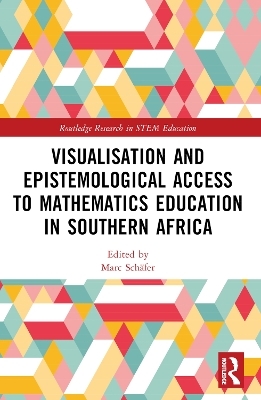
Visualisation and Epistemological Access to Mathematics Education in Southern Africa
Seiten
2024
Routledge (Verlag)
978-1-032-00042-8 (ISBN)
Routledge (Verlag)
978-1-032-00042-8 (ISBN)
This book demonstrates that using visualisation processes in mathematics education can help to enhance teaching and learning and bridge the inequality gap that exists between well-resourced and under-resourced schools in Southern Africa.
Drawing on classroom research conducted in the Southern African region, it examines how epistemological access in a context of gross inequality can be constructively addressed by providing research-based solutions and recommendations. The book outlines the visualisation process as an integral but often overlooked process of mathematics teaching and learning. It goes beyond the traditional understanding of visualisation processes such as picture forming and using tools and considers visualisation processes that are semiotic in nature and includes actions such as gestures in combination with language. It adds value to the visualisation in mathematics education research discourse and deliberation in Africa.
With a unique focus on Southern Africa and open avenues for further research and collaboration in the region, it will be a highly relevant reading for researchers, academics and post-graduate students of mathematics education, comparative education and social justice education.
Drawing on classroom research conducted in the Southern African region, it examines how epistemological access in a context of gross inequality can be constructively addressed by providing research-based solutions and recommendations. The book outlines the visualisation process as an integral but often overlooked process of mathematics teaching and learning. It goes beyond the traditional understanding of visualisation processes such as picture forming and using tools and considers visualisation processes that are semiotic in nature and includes actions such as gestures in combination with language. It adds value to the visualisation in mathematics education research discourse and deliberation in Africa.
With a unique focus on Southern Africa and open avenues for further research and collaboration in the region, it will be a highly relevant reading for researchers, academics and post-graduate students of mathematics education, comparative education and social justice education.
Marc Schäfer was formerly Professor of Mathematics Education and SARChI Chair in Mathematics Education, Rhodes University, South Africa.
1. Introduction to the Book 2. Towards a Theory of Visualisation Part 1: VISUALISATION AND PEDAGOGY 3. A Case for Number Sense 4. A Case for Fractions Part 2: VISUALISATION AND LEARNING 5. Figural Pattern Generalisation 6. Reasoning in Solving Word Problems 7. Algebraic Expressions Part 3: VISUALISATION AND TECHNOLOGY 8. Learning with GeoGebra 9. Teaching and Learning with Mobile Technologies Part 4: VISUALISATION, SEMIOTICS AND LANGUAGE 10. A case for Gestures 11. A case for Language 12. Final word – A Synthesis
| Erscheinungsdatum | 04.04.2023 |
|---|---|
| Reihe/Serie | Routledge Research in STEM Education |
| Zusatzinfo | 21 Tables, black and white; 68 Line drawings, black and white; 25 Halftones, black and white; 93 Illustrations, black and white |
| Verlagsort | London |
| Sprache | englisch |
| Maße | 156 x 234 mm |
| Gewicht | 344 g |
| Themenwelt | Mathematik / Informatik ► Mathematik |
| Sozialwissenschaften ► Pädagogik ► Allgemeines / Lexika | |
| Sozialwissenschaften ► Pädagogik ► Bildungstheorie | |
| Sozialwissenschaften ► Pädagogik ► Schulpädagogik / Sekundarstufe I+II | |
| ISBN-10 | 1-032-00042-2 / 1032000422 |
| ISBN-13 | 978-1-032-00042-8 / 9781032000428 |
| Zustand | Neuware |
| Informationen gemäß Produktsicherheitsverordnung (GPSR) | |
| Haben Sie eine Frage zum Produkt? |
Mehr entdecken
aus dem Bereich
aus dem Bereich
Einführung in die Theorie transformatorischer Bildungsprozesse
Buch | Softcover (2023)
Kohlhammer (Verlag)
34,00 €
Eine Einführung
Buch | Softcover (2023)
Kohlhammer (Verlag)
36,00 €


